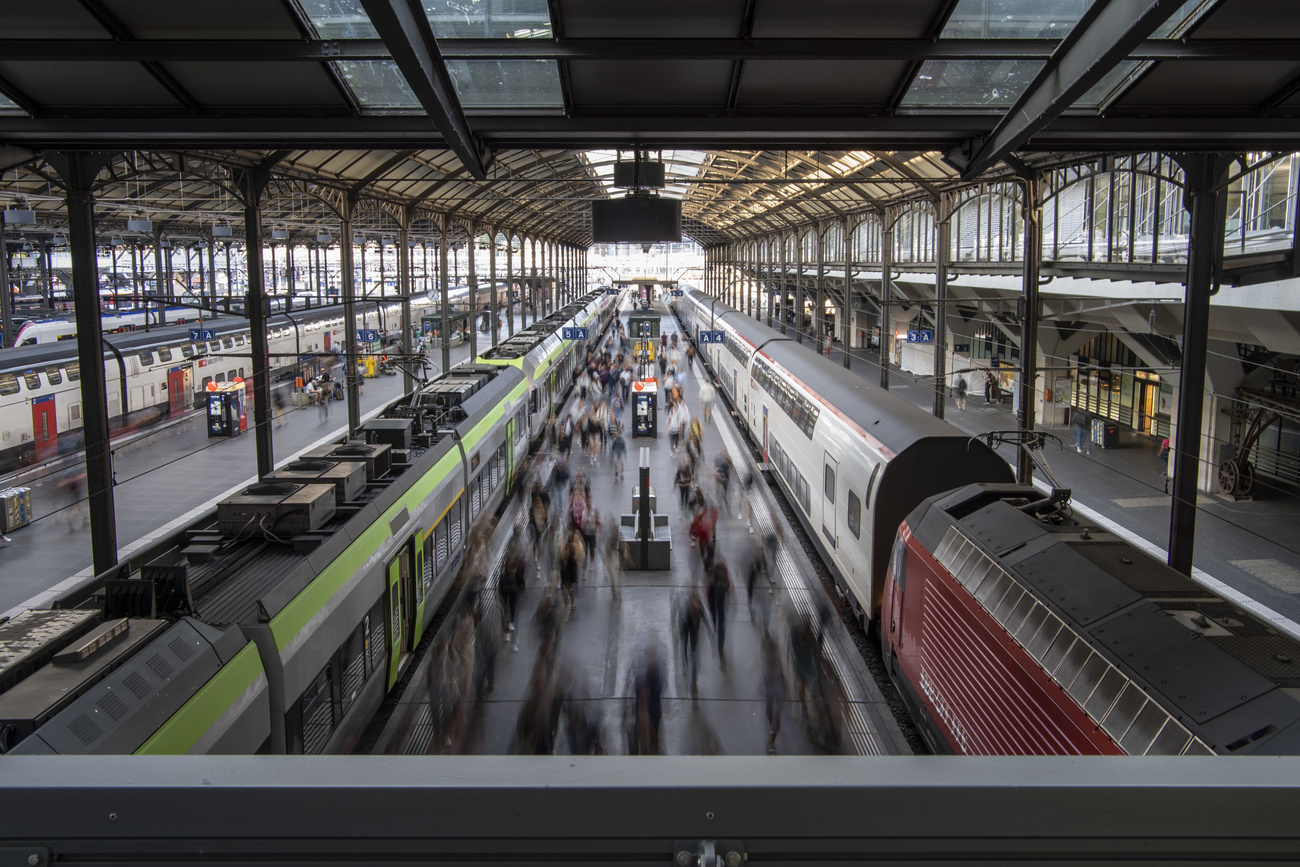
More Swiss railway stations to be made accessible for disabled travellers

The adaptation of Swiss railway stations and stops for disabled persons is continuing, with 42 more to be completed by the end of the year. By that time, 1,131 of the approximately 1,800 stations will have been adapted. By the end of 2027, 87% of travellers should be able to travel spontaneously and autonomously by train.
According to the 2024 status report published by the Federal Office of Transport (FOT) on Friday, a further 217 railway stations and stops should be adapted for disabled travellers by the end of 2027. This means that around 80% of the 1,629 stations that must be adapted for autonomous and spontaneous use by disabled travellers will have been adapted by then.
For around 158 of the 1,800 stops, adaptation is seen as excessive, partly because there are very few passengers. However, at these stations, permanent alternative measures would still have to be offered. These would include assistance from railway staff. A further 20 or so stations have been closed until the end of 2023 due to the adjustment of services.
+Read more: Government plans to invest over CHF16bn in Swiss rail network
2023 target not achieved
The railways were supposed to have converted all of their stations and stops to make them accessible to the disabled by the end of 2023. However, this target was not achieved with only 1,089 of the stops in Switzerland fit for accessibility purposes by the deadline.
The responsibility for this lies with the Swiss federal railways, wrote the FOT. They cited a lack of resources in terms of planning, personnel, lack of time slots or lack of financial resources as the reasons. In the case of 323 stations or stops, for example, the adaptations could only be implemented after 2027 “despite repeated intervention by the FOT”.
All people who use public transport benefit from disabled-accessible railway stations, the FOT continued. In addition to people with reduced mobility, this also includes senior citizens, passengers with a lot of luggage or prams, as well as injured travellers.
Adapted from German by DeepL/kc/ac
This news story has been written and carefully fact-checked by an external editorial team. At SWI swissinfo.ch we select the most relevant news for an international audience and use automatic translation tools such as DeepL to translate it into English. Providing you with automatically translated news gives us the time to write more in-depth articles.
If you want to know more about how we work, have a look here, and if you have feedback on this news story please write to english@swissinfo.ch.

In compliance with the JTI standards
More: SWI swissinfo.ch certified by the Journalism Trust Initiative





























You can find an overview of ongoing debates with our journalists here . Please join us!
If you want to start a conversation about a topic raised in this article or want to report factual errors, email us at english@swissinfo.ch.